| | | | ||
| . M. L. Marsh Ox-Teams and Barns
ILLUSTRATIONS AND PHOTOGRAPHS 1. The Miner's Sunday MAPS 1. Tahoe National Forest |
| Nevada County GenWeb
Marsh Mill is a historical town worth more than the asking price of $ 999,000. Includes a spring fed lake and 167 acres of rolling forested terrain. A plateau if you consider the hills surrounding the town. Martin Luther Marsh and his brother Daniel photocopied from the 1895 Pictorial History of Nevada County. The Marsh brothers were very prominent lumbermen in Nevada County. They partnered with A.B. Gregory in the 1860's to run the Old Pioneer Sawmill. It had been founded in the 1850’s on Little Deer Creek and encompassed the land now bounded by Nimrod, Nile and Clay Streets. The above map is a detail from the 1871 Birdseye View of Nevada City which appears below. Early newspapers mention a steam saw mill on Little Deer Creek owned by a “Russell and Hirst” in 1854 and owned by “Marsh, Palmer and Perry” in 1861. The sawmill and lumber operation of M.L. Marsh and A.B. Gregory on Nimrod Street in 1859 is shown on page 107 in the 1895 Pictorial History of Nevada County. (Marsh later removed his sawmill to another location on Boulder Street.) The 1864 Nevada County Assessor's roll shows the property as the Old Pioneer Sawmill of “A.B. Gregory.” Early tax assessments show stockpiles of lumber and 'working’ cattle on the property. Martin Luther Marsh and his large family resided in the historic Marsh-Christie house on Boulder Street. He died 14 December 1911. His brother Daniel died 26 July 1921.
Judah had ignored the Truckee Route early on, leaning more toward a southern route near Tahoe, etc. I gather that his Doctor pal in Dutch Flat had much to do with the decision being made in favor of the Truckee Route, but then today I find something else! ... Caleb Greenwood, the scout for the Stevens Party in 1844, found a way to bypass the upper Truckee Canyon in 1845. Known as the Dog Valley Section of the Truckee River Route of The California Emigrant Trail. From 1845 on it became THE route, basically a horseshoe detour from what is now Verdi, Nevada, to what is now Donner Lake, California. The Dog Valley Road would be nothing more than a part of the TRR until about 1852. The northern mines of California, specifically the Yuba River country, and particularly the North and Middle Forks, were worked at early as June of 1848. Roads from Marysville and Sacramento had been established to the settlements of Camptonville, North San Juan, and Nevada (City), by 1849. Pack trails of course connected these settlements to the diggings on the North and Middle Forks of the Yuba. By 1852, the trails from Camptonville and North San Juan had been developed into passable wagon roads. They would meet and become one roughly three miles east of Forest (City). It would continue as one road through to what is now Verdi, Nevada. Jackson and Henness had built a road to their ranch, and Dr. Webber had built a road to his lake and hotel, so connecting the roads was an obvious thing to do. Emigrants traveling over the TRR by 1852, would branch off the TRR near what is now Stampede Valley (Dog Valley Road), and instead of heading south and west to Donner, would head west and a little north. I have numerous diary excerpts to verify this. Diaries note that most went emigrants to Downieville, and a couple note that some companies went "south and west from Jackson's Ranch to Nevada City". (Not to be confused the Nevada City section of the Truckee River Route). ... That little jag to Nevada (City) is vital to the Judah connection. In 1859, after gold was discovered in the Comstock, two different companies were formed to push freight and people to and from Virginia City, Nevada. The first was the "Truckee Turnpike Company". Organized The second company started in Nevada (City), and was known as the "Heness Pass Turnpike Company". The two roads of the TTC that became one after Forest (City), and the HPTC, all became one at Jackson Meadows, now the site of the Jackson Reservoir. From that point on, the road was known as "The Henness Pass Road", and the companies involved worked as one, under the name HPTC, through to Virginia City, Nevada. Of interest to you initially would be the site of "Marsh Mill". This site sits directly on the HPTC route between Graniteville, (Eureka), and the site of Bowman House. Marsh Mill was of course owned and operated by Charles Marsh! In 1864, yet another road connected into the Henness Pass Road system. Known officially as the Pacific Turnpike, it was also known as "Culbertson's Road". This road ran from Dutch Flat east to Bear Valley, From a business viewpoint, let us look at Charles Marsh. His place sat roughly four miles west of Bowman House, directly on the HPTC road. The Pacific Turnpike intersected the HPTC Road at Bowman House. The Pacific Turnpike, A/K/A Culbertson's Road, was "owned" by yet another company, "The Nevada City Turnpike Company". The NCTC was basically the route of California #20, a heavily-used emigrant road in the 1850's. Both road connected at Bear Valley. This is complicated, so please bear with me. The Dutch Flat Tahoe Wagon Road, also started at Dutch Flat. Is that a coincidence? ...On the surface it appears that Judah and political as well as business allies were attempting to control wagon routes long before the existence of rail! My point to all of this is that I have found newspaper accounts from the 1850's and 1860's of Marsh and Judah on the Henness Pass Road. It was a prime candidate, per the accounts, for rail. Marsh's interest should be obvious. Considering where rail was laid, and further considering the position of Charles Marsh in the grand scheme, what happened? I will send you the accounts of what I have if you are not aware of them. ... I was recruited to act as a scout, guide and mule skinner/teamster for the official California 150th celebration. The Missouri crew was short-handed when they reached Fernley, Nevada, and as I know the old wagon roads, I was drafted on the spot. Two weeks later, we arrived in Sacramento. We had four wagons, all Conestoga's almost thirty feet each in length. The wagons were built by Morris Carter using Smithsonian plans, right down to the brakes; being nothing more than a rope across the box to hook a The mules did not like the few times we hit pavement, once in Reno and once near Truckee. In Truckee, some motorist honked a number of times, and the mules of course "went south". The result was two runaway teams, one of course was mine! We all survived the mishap, two-leggers and four-leggers alike, but we had to layover below Donner Summit to do some wagon repair, shrink wheels, replace a broken tongue, etc. I had been thrown from the wagon during the mishap and had more than a few bruises."
The Southern 70 acres version of El Capitan. Massive rock formation, hidden granite cliff on the left side covered by the trees
Marsh Mill Road
Along Marsh Mill Road
Entrance to R/W Middleton Rd
Entire ghost town for sale at less than $1million
Their bust is your boon. The town of Bradian in Canada's British Columbia was abandoned in the 1970s when the local gold mine closed, and now it's for sale at just $995,000. That includes all 50 acres of the mountain hamlet, including 22 empty homes that will need a lot of attention to make habitable again. The town was established in the 1930s, in the middle of Canada's gold rush, by families who came to work at the nearby Bralorne mine.
+12 Ghost town: The abandoned town of Bradian in Canada's British Columbia has hit the market with an asking price of about $907,000 U.S. dollars
+12 Abandoned: The small town was established in the 1930s, in the middle of Canada's gold rush, when families flocked to Bradian to work at the nearby Bralorne mine. Above, a 1960s newspaper found on the 50-acre property
+12 Shut down: The town was abandoned in the 1970s when the mine closed and there was no longer any work for the locals
+12 Rural: Bradian is located four hours from Vancouver and two hours from ski-resort Whistler. It includes 50 acres of property and 22 abandoned homes For 40 years, the mine was one of the biggest gold producers in Canada, turning out $4million ounces of the precious metal. But the mine closed in 1971 when the price of gold dropped and the operators couldn't turn a profit. By the end of the 70s, the town was completely abandoned and the homes fell into disrepair. In 1997, Vancouver couple Tom and Katherine Gutenberg, senior flight attendants for Air Canada, bought the town as a fun project for their family.
+12 Gold in the hills: For 40 years, Bralorne mine was one of the biggest producers of gold in Canada, turning out $4million in the previous metal
+12 Investment: Current owners Tom and Katherine Gutenberg, senior flight attendants for Air Canada, bought Bradian in 1997
+12 Bonding: The Gutenbergs spent vacations and holidays at the property, working to fix it up with their two young children 'When he saw the town was falling apart, Tom thought, "Wouldn’t it be great for the family to save the town?"' listing agent John Lovelace told FoxNews.com. Now that their two children are grown up though, the Gutenbergs rarely visit the town, and decided to put it up for sale. Bradian was originally listed in 2010 with an asking price of $1.3million. They recently dropped the price to $995,000 - or $907,0000 in U.S. dollars - and have seen a flurry of interest in the unique property.
+12 Moving on: Now that their children have grown, the Gutenbergs don't visit Bradian often and decided to put it up for sale
+12 Discount: Bradian was initially listed in 2010 for $1.3million, but the owners bumped that price down recently
+12 Excitement: The real estate agent says he's received more than 30 calls from people interested in the property - some even as far away as Australia
+12 Promising: Lovelace says the property will take a lot of work to make habitable again, but it could prove a cash cow for whoever invests the money into it
+12 Potential: Lovelace thinks Bradian would be a great place to start a snowmobiling company Lovelace says he's received more than 30 calls, emails and texts from people interested in the property - with some as far away as Australia. However, Lovelace has not been shy about how much work the property needs. 'If somebody went in there with some money and they got the services up to speed and created those (vacant) lots, they’d make a crap load of money. But that’s a five to 10-year process,' he said. Lovelace hopes another young couple will take interest in the property in the same way the Gutenbergs did. He says it would also make a great location for a snowmobiling company. Bradian is located a four-hour drive from Vancouver and two hours from ski-resort Whistler. However, for nine months of the year, the road to Whistler is impassable, making it a four-hour drive as well. Bradian isn't the only town to hit the real estate market in recent months. Back in June, the town of Swett, South Dakota was listed for $400,000.
|
|
When the warm sun, that brings
When the bright sunset fills
Whose woods these are I think I know. His house is in the village, though; He will not see me stopping here To watch his woods fill up with snow.
My little horse must think it queer To stop without a farmhouse near Between the woods and frozen lake The darkest evening of the year.
He gives his harness bells a shake To ask if there is some mistake. The only other sounds the sweep Of easy wind and downy flake.
The woods are lovely, dark, and deep, But I have promises to keep, And miles to go before I sleep, And miles to go before I sleep
|
For $2.7million you can buy your very own enchanted forest, complete with houses from Goldilocks and the Three Little Pigs
Every child dreams of living in a magical land, complete with dragons and castles, as well as their favorite fairytale characters. And now those childhood dreams could become a reality - at the bargain price of just $2.7million (£1.74million). The Enchanted Forest, in British Columbia, not only boasts 38.1 acres of beautiful woodland, but also a host of colorful characters to keep its new owners company - from Captain Hook and Snow White, to Humpty Dumpty and the Pied Piper. +14 Magic: The Enchanted Forest theme park in Calgary, British Columbia, is on sale for a bargain $2.7million +14 Attraction: Up to 1,000 visitors a day are said the flock to the park - which was lovingly created over 10 years more than 70 years ago +14 Neighbors: The forest has been filled with a host of magical characters to keep the new owner company during the quieter periods +14 Properties: It also boasts a host of different homes for the new owner to explore - including this one, the home of the Three Bears The new owner will also get their pick of the properties, from the Three Bears' cozy cottage, to their very own castle - although they may have to watch out for the dragon peeking over the battlements. They'll also be the proud holder of British Columbia's tallest treehouse, which soars 50 feet into the sky. And if it is peace and quiet they seek, they can certainly find plenty of that in the forest: the nearest major town is Calgary, 275 miles away. However, if magic isn't quite your cup of tea, the property also boasts a high-rope assault course, mile-long nature trail and lake. +14 Record breaking: The park also has the tallest treehouse in the whole of British Columbia, soaring 50 feet into the sky +14 Hard work: The figurines dotted around the forest were lovingly created by the park's first owner, Doris Needham +14 Enchanting: Doris was an artist in the 1950s who wanted the perfect space to place the figurines - and settled on the forest +14 For sale: It was bought in 1990 by Rocky and Juliet Ehlers, who have now decided it is time to retire +14 Continue: But Rocky has said he very much hopes the new owners will continue to run the much-loved park as a tourist attraction The Enchanted Forest was opened as a theme park in the 1960s after 10 years of hard work by Doris and Ernest Needham, who lived in their very own Candy Cane House. Indeed, it was Doris' own artistic talent which helped create the 350 figurines scattered about the neighborhood. She searched for the perfect location for her unusual figurines for two years, before settling on this space in the Cedar Mountains. Since 1990, however, the popular attraction has been owned by Rocky and Juliet Ehlers. The couple, having lovingly run the forest as a theme park for 25 years, have now decided to hang up their ruby slippers for good, and enjoy a quieter retirement. +14 Interest: There is already a lot of interest in buying the property - with inquiries flooding in from all over the world +14 Bargain: The theme park is far cheaper than Michael Jackson's Neverland, which was expected to fetch $85million last year +14 Bright: It is also a bargain when compared to the cost of flats in some of the most expensive cities in the world Rocky, 69, told the Revelstoke Times Review: 'It's been very enjoyable years and it's time we move on.' He remains hopeful whoever buys the Enchanted Forest - which can still attract up to 1,000 visitors a day - will keep running it as a theme park. Estate agent Steve Daschuk said: 'This is such a magical property. So far we've had interest from all over Canada and internationally. 'We've even had people get in touch from China, enquiring about the forest.' And that is perhaps not surprising: the theme park's asking price is a snip of that sought for Michael Jackson's Neverland, which was expected to get as much as $85million when it went on sale last year. It is also just a million dollars more than the average flat price in Manhattan, the same price as a two-bedroom flat in central London and Hong Kong. +14 Dragons: Estate agent Steve Daschuk described it as 'such a magical property', and said people from China had expressed interest +14 Remote: The nearest large town is Calgary - which is 275 miles away from the Enchanted Forest
|
|












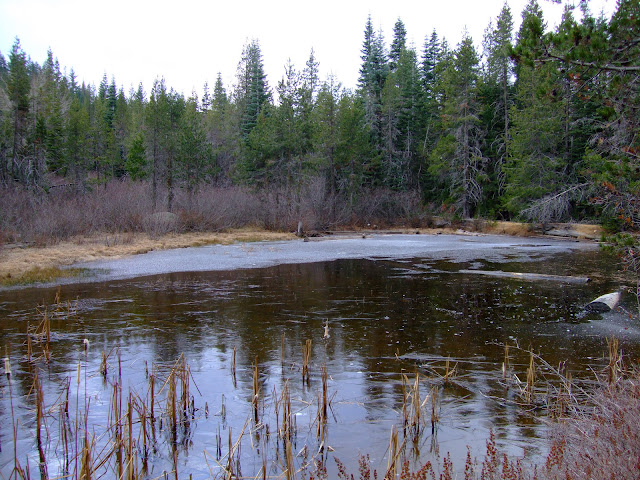

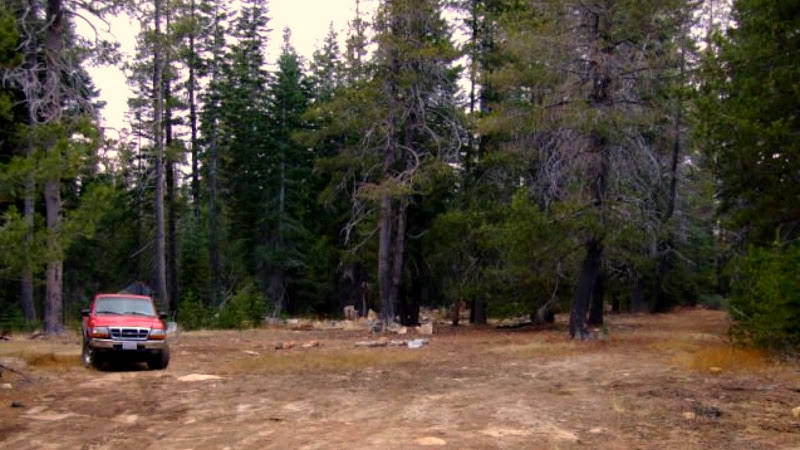


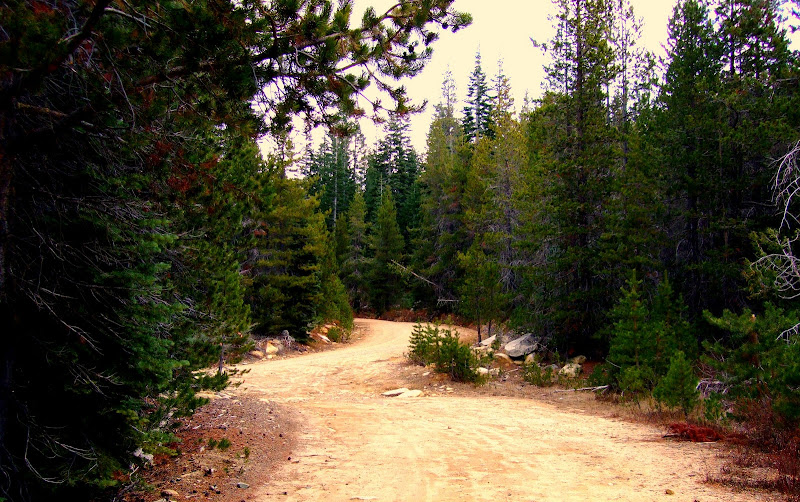
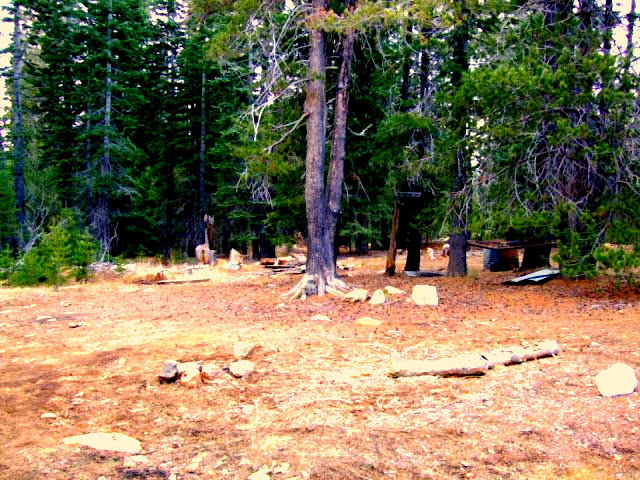
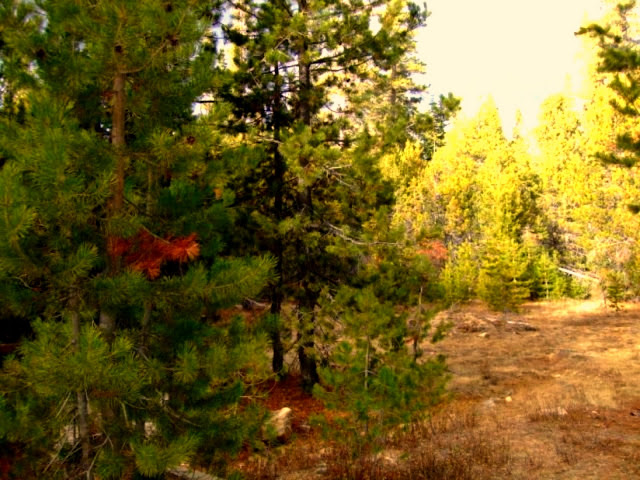

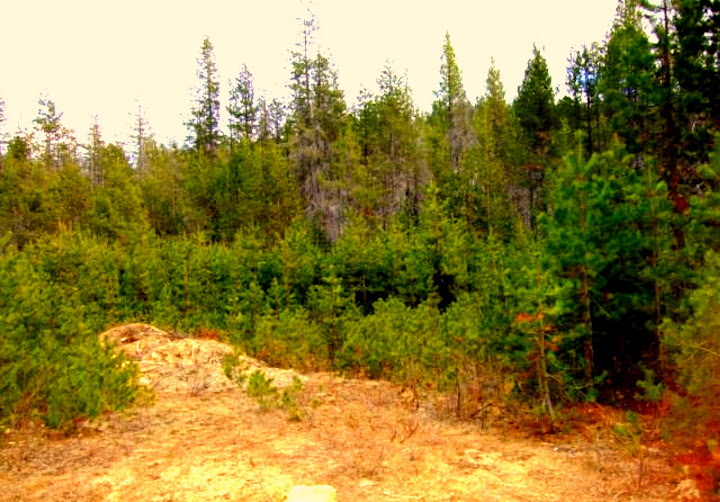
No comments:
Post a Comment